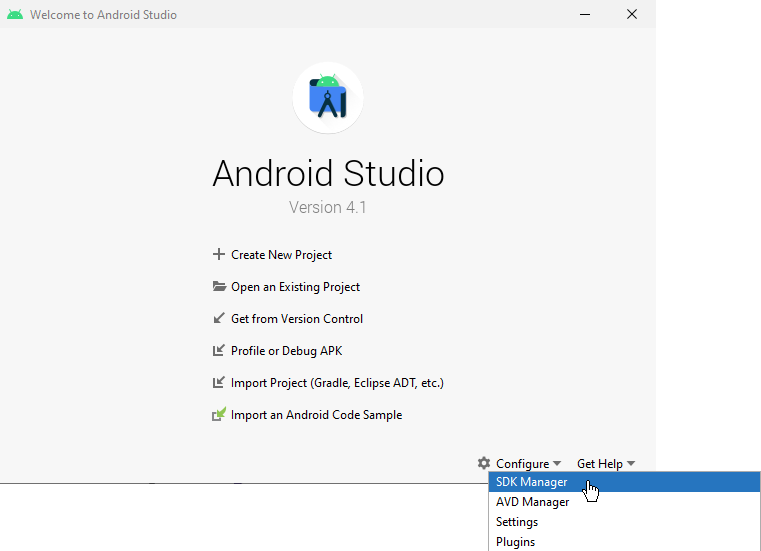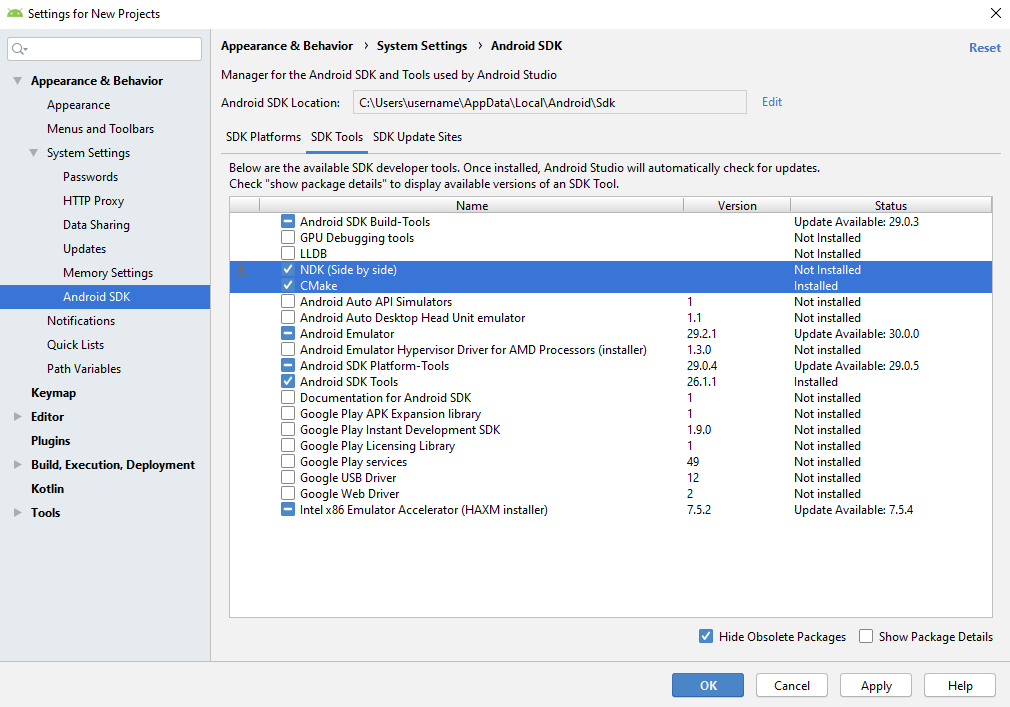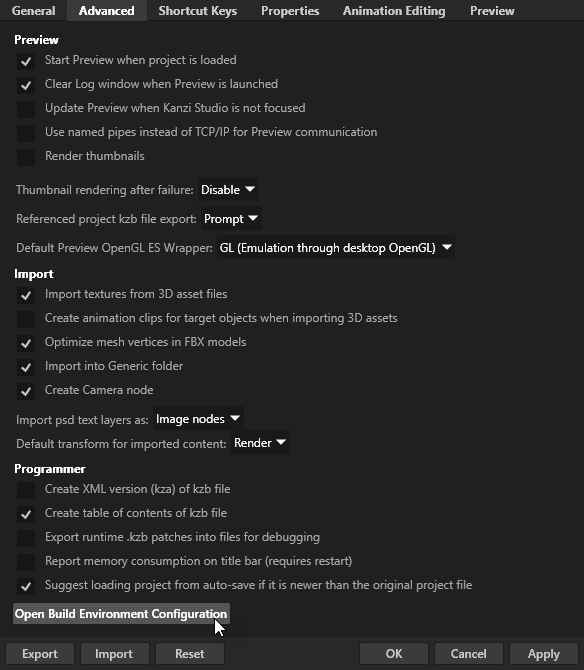Requirements for Android application development with Kanzi¶
When you are developing Kanzi applications for Android you can use Android Studio, the Clang toolchain, and the Gradle build system. This development approach is tested on:
Ubuntu/Linux 18.04.1
Windows 10
To develop Kanzi applications for Android, you need:
Android Studio 4.1.3 or newer
You can download and install Android Studio from here.
Android Gradle plugin 4.1.3 or lower
Gradle 6.7.1 or lower
64-bit JDK 8 (1.8.0) or newer
We recommend using the JDK that is bundled with the Android Studio installation.
CMake 3.5.1 or newer
Android API level:
Kanzi Android framework (droidfw) requires Android API level 26 (Android version 8.0.0) or newer.
Kanzi application framework (appfw) requires Android API level 21 (Android version 5.0) or newer.
Java language version:
Kanzi Android framework (droidfw) requires Java 8 (1.8) or higher.
Kanzi application framework (appfw) requires Java 7 (1.7) or higher.
To use Java Kanzi Engine plugins from Kanzi Studio, you need:
64-bit JDK 8 (1.8.0) or newer
We recommend using the JDK that is bundled with the Android Studio installation.
Alternatively, you can install a standalone OpenJDK. For example, from https://github.com/AdoptOpenJDK/openjdk8-binaries/releases/download/jdk8u292-b10/OpenJDK8U-jdk_x64_windows_hotspot_8u292b10.zip.
Note that you can only use Java plugins with Kanzi Android framework (droidfw) applications.
Setting up the Android build environment¶
You must set up your Android build environment before you can deploy a Kanzi application to Android. To set up the build environment in Android Studio, you need an Internet connection.
To set up the build environment:
In Android Studio, in the Welcome screen select Configure, and in the dropdown menu select SDK Manager.

In the SDK Manager window in the SDK Tools tab select:
NDK (Side by side)
CMake
Click OK.

Open Kanzi Studio and in the main menu select Edit > User Preferences and in the Advanced tab click Open Build Environment Configuration.

In the Build Environment Configuration dialog make sure that these environment variables are correctly set:
ANDROID_HOMEto the Android SDK pathFor example,
C:\Users\<user>\AppData\Local\Android\Sdk.JAVA_HOMEto the 64-bit JDK pathIt is recommended to use the JDK which is bundled with Android Studio.
For example,
C:\Program Files\Android\Android Studio\jre.

Build process¶
This diagram shows the process that Kanzi uses to build an Android package.